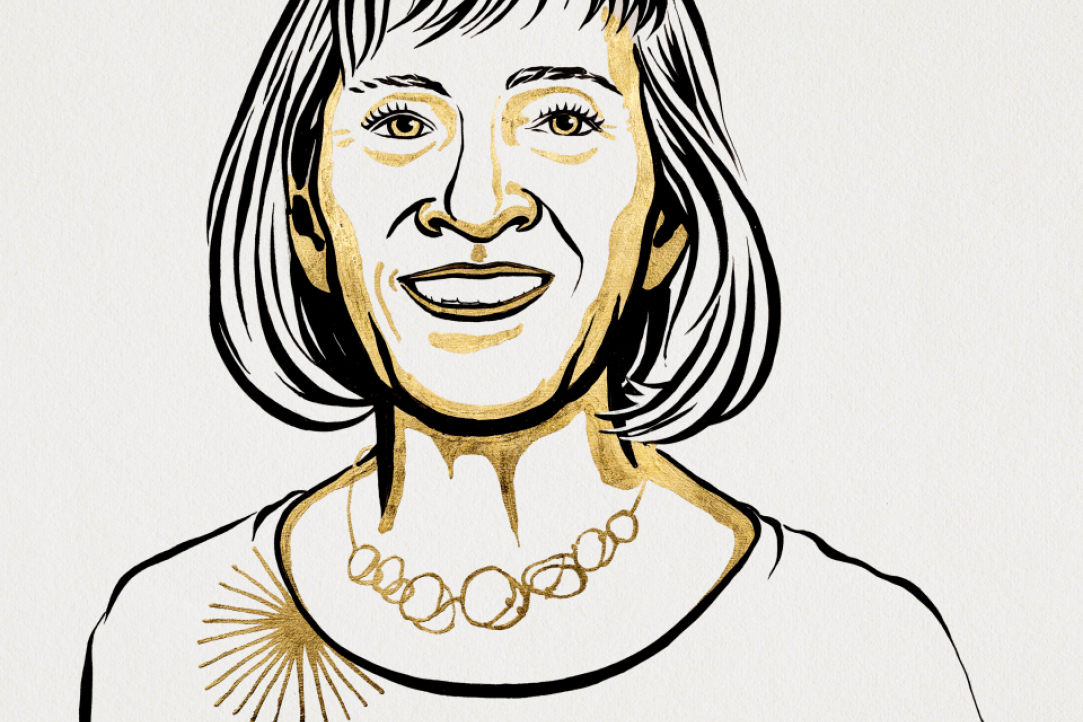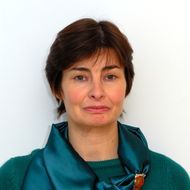Winner of 2023 Nobel Prize in Economics Announced

The Royal Swedish Academy of Sciences has awarded the Sveriges Riksbank Prize in Economic Sciences in Memory of Alfred Nobel 2023 to Claudia Goldin (Harvard University, Cambridge, MA, USA), ‘for having advanced our understanding of women’s labour market outcomes.’ According to the Nobel committee, Professor Goldin has uncovered key factors that determine gender differences in the labour market.
Each year the Faculty of Economic Sciences announces the contest to predict the winners of the Sveriges Riksbank Prize in Economic Sciences in Memory of Alfred Nobel in 2023. Participants can name up to three candidates. The contest is named after NES Professor Andrey Bremzen, a talented populariser of economic sciences and organiser of intellectual competitions.
Claudia Goldin has presented the first all-encompassing account of women’s earnings and their participation in the labour market throughout the ages. Her research identifies the causes of changes, as well as the fundamental sources of the continuing gender gap.
Women are significantly underrepresented in the global labour market, and women who do work earn less than men. Claudia Goldin studied archives and collected data on the United States from over 200 years, which allowed her to demonstrate how and why gender pay gaps and employment levels have changed over time.
Professor Goldin demonstrated that the participation of women in the labour market does not trend towards growth over the whole period examined, but rather takes the form of a u-shaped curve. The participation of married women decreased with the transition from an agrarian society to an industrial one at the start of the 19th century, but started to increase with the growth of the service sector at the beginning of the 20th century. Goldin attributes this to structural changes and the evolution of social norms regarding women’s obligations in the home and family.
During the 20th century, the level of education among women steadily grew, and in the majority of high-income countries it is now significantly higher than that of men. Goldin demonstrated that access to contraceptive pills played an important role in accelerating these revolutionary changes by opening up new opportunities for career planning.
Despite modernisation, economic growth and an increase in women’s employment in the 20th century, the gap in earnings between women and men has remained largely the same for a long time. Goldin believes that this is partly because decisions about education, which influence career opportunities throughout one’s life, are made at a comparatively young age. If young women’s expectations are formed by the experience of previous generations—for example, mothers who did not return to education until their children had grown up—then change will occur slowly.
Historically, a significant part of the gender pay gap has been attributed to differences in education and choice of profession. However, Professor Goldin demonstrates that today, the earnings gap predominantly affects women employed in the same positions as men, and that to a large extent, this gap appears after the birth of a woman’s first child.
‘Understanding women's role in the labour market is important for society. Thanks to Claudia Goldin's groundbreaking research, we now know much more about the underlying factors and which barriers may need to be addressed in the future,’ said Jakob Svensson, chair of the Committee for the Prize in Economic Sciences.

Elena Kotyrlo, Professor of the HSE University Faculty of Economic Sciences
‘Her personal success story illustrates the importance of the issue of gender differences in the labour market. In 1990, Professor Goldin became the first woman in the history of the Harvard University Faculty of Economics to earn a tenured position. She is now the third woman to receive the Nobel Prize in Economics, which has been awarded since 1969. Claudia Goldin is not only a world-renowned scientist, but also a public figure whose initiatives are aimed at expanding women’s opportunities to receive an education and fulfilling work. Goldin has succeeded in bringing the issue of gender equality in the labour market onto the socioeconomic policy agenda of many countries and international organisations. This is one of the UN Sustainable Development Goals.’
More information about Claudia Goldin’s research and achievements is available on the official website of the Nobel Prize, which includes summaries at both the popular science and specialist levels.
See also:
Economists Suggest Using Media's Attention to Bitcoin to Predict its Returns
Researchers at the HSE Faculty of Economic Sciences have studied the relationship between the changes in the bitcoin prices and the media attention to this cryptocurrency. The researchers examined the mentions of bitcoin in the media between 2017 and 2021 and built a mathematical model that revealed the strong relationship between media attention and bitcoin prices. The study was published in the Applied Stochastic Models in Business and Industry journal.
HSE Economists Develop a Model for Sustainable Solar Geoengineering Agreements
Researchers at HSE University and George Mason University have investigated the sustainability of prospective international agreements on solar geoengineering. The authors have proposed a scheme in which payments flow from affluent nations to less wealthy ones; an arrangement which sets their proposal apart from traditional systems. The proposed model aims to dissuade more vulnerable countries from excessive use of the prevalent geoengineering method by providing compensation for the potential damage they may incur and supporting their adaptation to climate change. The paper has been published in Environmental and Resource Economics.
Crypto Investors Receive Downside Risk Premiums
Victoria Dobrynskaya, Assistant Professor at the HSE Faculty of Economic Sciences, has analysed the price dynamics of 2,000 cryptocurrencies from 2014 to 2021 and investigated the association between downside risks and average returns in the cryptocurrency market. As it turns out, cryptocurrencies exhibiting a greater risk tend to yield higher average returns. The study has been published in International Review of Financial Analysis.
Results of the Contest to Predict Nobel Prize Winners in Economics
Claudia Goldin's award was predicted by five people. They are Olga Peresypkina (RSVPU), Anastasia Sirotina (first-year student of the Bachelor's in Applied Mathematics and Information Science at HSE University), Mikhail Shabanov (Global Vision Asset Management LLC), Tatul Hayrapetyan (PhD student at the Stanford Graduate School of Business), and Hemant Kumar (Ettumanoorappan College, Kerala, India).
Financial Sector Risks Can Hinder Transition to Green Economy
According to HSE and MGIMO economists, increased financial sector risks in developed countries may be associated with a higher carbon footprint in banks' loan portfolios. This is likely due to the fact that in response to an unstable economic situation, banks tend to issue more loans to companies that have a detrimental impact on the environment. Although this might yield short-term profits for the banks, such trends hinder humanity's progress towards achieving a green economy. The paper has been published in Environmental Science and Pollution Research.
Millennials Are Three Times Ahead of Zoomers in the Monetised Creator Economy. Even Boomers Outperform Them. Okay Then…
A group of specialists from the HSE Institute for Cultural Studies, Vitaly Kurennoy, Alexander Suvalko and Maria Figura, have determined two main trends that are actively shaping the image of the creative economy and culture in 2021-2023: the creator economy and the maker economy.
Teaching Masters' Students and Conducting Lectures in English Boost Academic Productivity
HSE researchers have analysed teaching load data at the HSE campus in St Petersburg to investigate the potential impact of teaching on faculty research output. They found that factors such as teaching primarily masters' courses, conducting 20% of lectures in English, and supervising only one doctoral student per year were associated with a greater likelihood of producing more high-quality academic papers. The study has been published in Higher Education Quarterly.
'HSE Paved My Road to Harvard'
Nargiz Mammadova, from Azerbaijan, is a 2022 graduate of the Economics: Research Programme and a finalist of the Global Essay Competition in St. Gallen. As she prepares to start her Master of Public Administration in International Development programme at Harvard in August 2023, Nargiz reflects on her time studying at HSE University during the COVID-19 pandemic, talks about her work for the State Oil Fund of Azerbaijan, and shares an important message for future students.
Income and Cost of Living Distribution Found to Be Similar in Russia and US
Researchers at the HSE Faculty of Economic Sciences Laboratory for Wealth Measurement analysed income and cost of living data at the sub-regional level in Russia (municipalities) and in the US (counties). The study reveals that territorial differences in the cost of living are more pronounced in Russia compared to the United States. However, the distribution of overall income across settlements of varying sizes is quite comparable in both countries. The article has been published in the HSE Economic Journal.
12% of Middle-aged Female Russians Look After Both Children and Parents at the Same Time
Economists at HSE University and the Russian Presidential Academy of National Economy and Public Administration (RANEPA) have assessed the situation of women from the ‘sandwich generation’ — those who have to take care of both their children and elderly parents. The results were mixed: women in this situation often fail to eat regularly, neglect medical check-ups and are more likely to be overweight, but at the same time suffer less frequently from chronic diseases, smoke and drink less and generally show a higher level of life satisfaction. The preprint of the study is published in the Munich Personal RePEc Archive.


